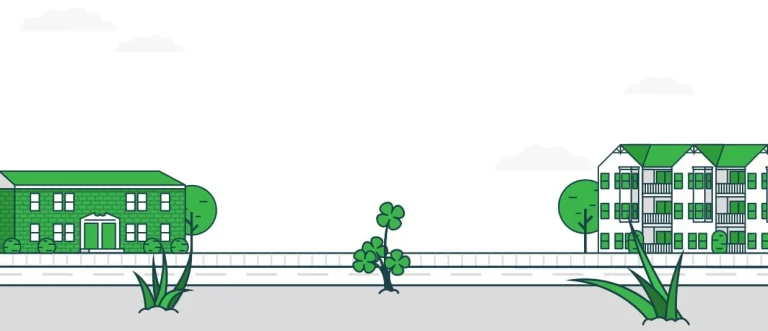From the big cities of Dallas, Austin and San Antonio to the coastline of Corpus Christie and Houston, Texas is filled with condos. Whether your condo is located on the first floor or the 70th floor, you still need a Texas condo insurance policy to protect your investment and belongings.
Getting a Texas HO6 condo policy is easy with Clovered. We can pair you with a flexible policy that meets your coverage needs and your budget. Simply utilize our easy-to-use quoting platform and you’ll get the perfect Texas condo insurance!
What Insurance Do I Need for a Condo in Texas?
There’s only one type of condo insurance in Texas that’s required and it’s an HO6 policy. It’s deemed this term because it shares many similarities with other home insurance policies and, except for the physical structure, protects the same things.
Personal Property
☘ Since it’s a walls-in policy, meaning only what’s inside the four walls of a condo are typically covered, an HO6 begins with coverage for personal belongings. This helps to protect items you keep inside your home, such as clothing, computers, furniture and TVs. Since condo owners don’t own the property outside their unit, belongings that are permanently kept outdoors may not be covered.
Loss of Use
☘ If a peril occurs that damages or destroys your condo, causing you to temporarily move out, loss of use can help to cover monthly rent at an equivalent home, storage fees, pet boarding and many other expenses you wouldn’t have incurred had you been living in your unit. Since your neighbors may not be as careful as you, loss of use is pivotal in protecting your wellbeing.
Personal Liability
☘ If an accident occurs to a guest in your condo unit and you’re deemed liable, personal liability coverage can step in and help pay for medical bills and legal expenses for major incidents like dog bites, broken bones or even accidental death. For condo owners, personal liability is typically the highest amount of coverage you’ll maintain.
Medical Payments
☘ MedPay, as it’s often called, is similar to personal liability in that it covers injuries that occur on your property. But with medical payments coverage, only medical bills for minor injuries will be paid — no matter whether you’re at fault or not.
Loss Assessment
☘ If the condo’s master HOA policy maximums don’t pay for significant damages or incidents, each owner will have to pay a special assessment. This add-on protects policyholders from paying significant special assessment fees handed down by the condo complex.
Building Property Protection
☘ Condo insurance is a walls-in policy, so you don’t have to protect the building’s structure. But building property protection protects the walls and interior of your condo unit if they’re damaged or destroyed by a covered peril, which is important since you may have many neighbors.
How Much Is Condo Insurance in Texas?
The average condo insurance cost in Texas is just $60 per month or $720 per year, which is right on par with the national average. The average cost is determined mainly by coverage costs, location and the price of your condo.
Beachside condos are more susceptible to hurricanes and tropical storms. If your condo is located on the first floor off the Gulf of Mexico, it’s more susceptible to flooding or other water damage. There are a multitude of factors that play an equally important part of condo insurance cost in Texas.
How to Get the Best Condo Insurance in Texas for Cheap
Getting the best-priced condo insurance in Texas while maintaining adequate coverage is easy with Clovered. Our online quoting tool does the hard work for you by compiling quotes from the state’s leading carriers and providing a policy that has the coverage you need and the price you want to pay.
The editorial content on Clovered’s website is meant to be informational material and should not be considered legal advice.




